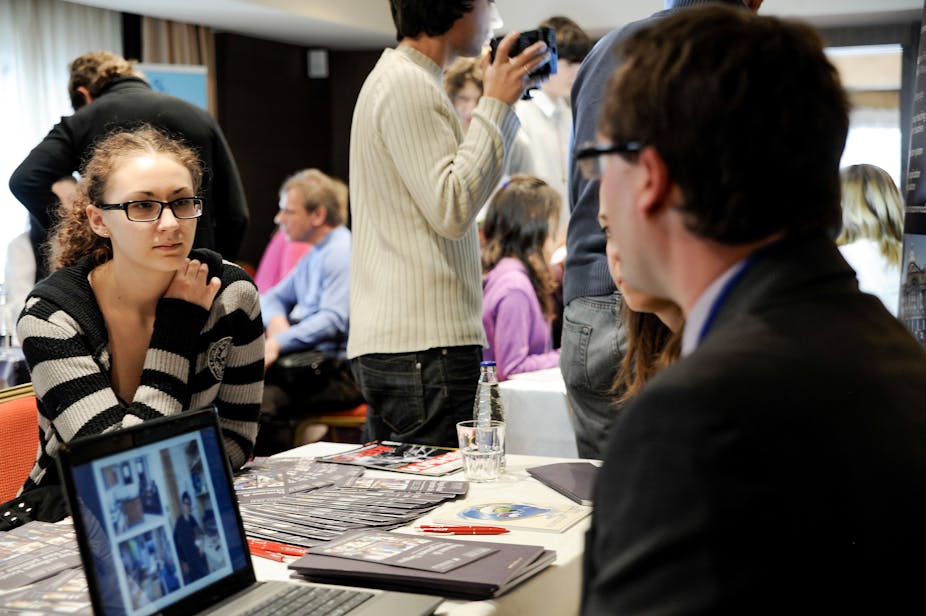As higher education has gradually become more commercialised, universities are getting used to employing professional marketers to help develop and manage their reputations and brands. But while the sector is now generally happy with the concept of student recruiters acting as “educational counsellors” supporting students to make a decision about where to apply to university, few of us have been honest enough to talk about these people as part of sales teams.
Yet the reality is that our student recruiters are selling educational places to appropriately qualified students. And in the same way that for-profit entities use external agents to help them access markets and make sales, universities have long done the same internationally.
The difference between universities and many openly commercial organisations is that we typically hide this aspect of our work – in some cases pretending it doesn’t even take place. You only have to look at university websites and see how easy, or not, it is to find who their international student recruitment agents are. Yet the reality is that without the networks of international student recruitment agents we employ around the world, the huge international student recruitment success the UK has experienced over the past 15 years just would not have happened.
Agents provide a whole range of services to universities from market research, promoting degree programmes, verifying students’ qualifications, right through to collecting tuition fees and accommodation payments. Prospective students receive advice from agents on where to apply, how to complete applications and write personal statements and ultimately on which university to choose.
Big money in recruitment
As a sector we spend at least £60m a year in commission payments to agents, according to a 2012 investigation by Times Higher Education. These agents help recruit almost 40% of our international students, according to the Observatory on Borderless Education and the Higher Education Statistics Agency found these students earnt universities more than £3.5 billion in tuition fees alone in 2012-13.
This isn’t something we should be ashamed of. Universities make use of these recruitment agents because they’re effective in helping to meet a variety of objectives including income, student volume and even diversity and quality of student intake.
But some universities don’t like to talk about these agents – perhaps because they are worried that working with them taints the sector, or that paying them is in some way unethical. My view, and that of my fellow researchers Iona Huang and Christine Humfrey, UK universities’ use of agents is that we risk damaging our reputation not by working with agents – but by hiding the fact that we do. Transparency will dispel rumours of unscrupulous behaviour by both agents and universities and help to improve standards.
No secret agents
If universities undertake proper, continuous due diligence and only appoint agents who meet minimum standards, then they should publish details of all the companies they work with as a matter of course. There should no secret university agents. While most universities claim to have due diligence processes in place for the appointment of agents, our research found that much of this was superficial in nature and lacked ongoing monitoring.
There is often strong pressure on international recruiters to meet tough intake, or sales, targets. Life is getting harder for recruiters as the market becomes more competitive and at the same time universities need ever more international students to balance the books. As the financial environment in which we work becomes more difficult, international student income becomes more important.
But at the same time agents should meet ethical standards that fit with the long-term interests of the universities they are acting for. Compromising our ethical standards to meet short-term targets will – if we mis-sell courses as a result – harm universities that are reliant on reputation carried by word of mouth. An unhappy student today can tell millions around the world by just the click of a mouse.
Preventing mis-selling
Transparency should also put a stop to the unethical practice of paying international schools, teachers and counsellors, for student referrals. I asked colleagues at universities which appoint school teachers as recruitment agents how they would feel if their own child was receiving advice on university applications by a teacher being paid by some universities. Most colleagues wouldn’t like it. If it’s not something we would want for our own children let’s not force it upon our prospective international students.
In a report on this issue published by the British Council in October, we also recommended that universities should be clear to prospective students that they are paying agents. This would allow students to demand the appropriate service from them, in the full knowledge that the advice they are receiving may be influenced by payment.
Despite some investigations in the activities of agents and accusations that some were prepared to relax entry requirements, we have so far mostly avoided the kinds of scandals that have been common place in the financial services sector.
But I believe that universities risk similar accusations of mis-selling if they don’t put their house in order soon and adopt a more transparent, honest and ethical approach to student recruitment activities and the use of international sales agents.

